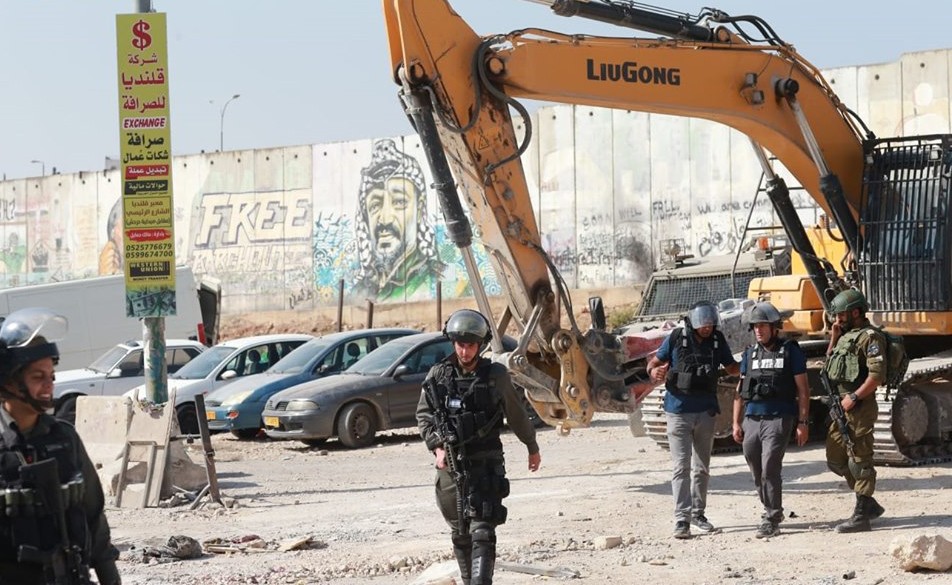Israel has become infamous for its measures of collective punishment against the Palestinian population, including its notorious system of restrictions to Palestinian movement and access. Physical barriers include: checkpoints, roadblocks, trenches, earth mounds, barbed-wire fences, closed or “settler-only: roads, closed military zones and the infamous annexation wall.
In recent days, Palestinians across the oPt have been facing increased restrictions on movement and access to; medicine, education, trade, social and familial ties, worship, property rights and agriculture are also harmed by these restrictions and the opacity with which restrictions applied raises serious questions about the arbitrariness and abuse of the system.
Residents of occupied East Jerusalem’s Shufat refugee camp and the surrounding areas that lie within the boundaries of the Israeli municipality of Jerusalem, but outside the annexation wall have been trapped in a big prison for four days, with the majority unable to leave due to Israeli enforcement of a strict blockade. Even humanitarian aid workers including medical staff have been denied entry to Shufat, Anata and the surrounding areas. Palestinians trapped inside have been living in terrible humanitarian conditions, persecuted through checkpoints, under ongoing attacks by Israeli occupying forces that use excessive force, including live ammunition, teargas, stun and smoke grenades, home raids in the middle of the night terrorizing civilians including women and children.
The refugee camp and the surrounding areas are home to more than 80,000 Palestinians, all suffering from indiscriminatory collective punishment for the action of an individual or group, aiming to create a climate of fear and intimidation and subjugate Palestinians, while maintaining a security rhetoric. The prohibition of collective punishment is stated in The Hague Regulations, the Third and Fourth Geneva Conventions[1]. The prohibition is recognized in Additional Protocols I and II as a fundamental guarantee for all civilians and persons horse de combat[2]. The Report of the Commission on Responsibility also considers collective punishment/penalties as a war crime.
The Jerusalem Human Rights Consortium and its member organizations call upon Third States to pressure Israel:
- To abide by its obligations under international law especially the Fourth Geneva Convention, The Hague Regulations and the International Covenant on Civic and Political Rights.
- Remove the movement and access restrictions in place through the oPt especially in Shufat Refugee Camp in conformity with its obligations, including allowing humanitarian access.
- Cease all measures and policies that contribute to the fragmentation of the Palestinian people, including the denial of Palestinian refugee return, the closure of Jerusalem and of the Gaza Strip, the construction of the Annexation Wall, and the imposition of severe restrictions.
The Jerusalem Human Rights Consortium:
The Catholic Centre for Human Rights – Saint Yves
The Jerusalem Human Legal Aid and Human Rights Centre – JLAC
The Women’s Centre for Legal Aid and Counselling – WCLAC
The Land Research Centre - LRC
[1] Hague Regulations, Article 50 (cited in Vol. II, Ch. 32, § 3718); Third Geneva Convention, Article 87, third paragraph (ibid., § 3720); Fourth Geneva Convention, Article 33, first paragraph (ibid., § 3721).
[2] Additional Protocol I, Article 75(2)(d) (adopted by consensus) (ibid., § 3723); Additional Protocol II, Article 4(2)(b) (adopted by consensus) (ibid., § 3724)




